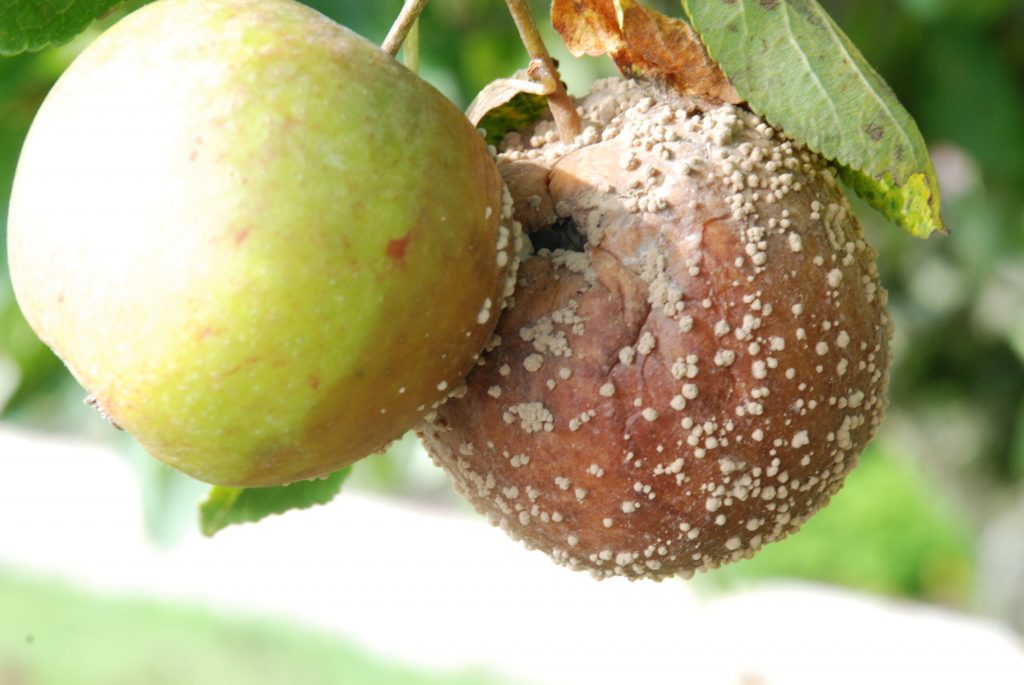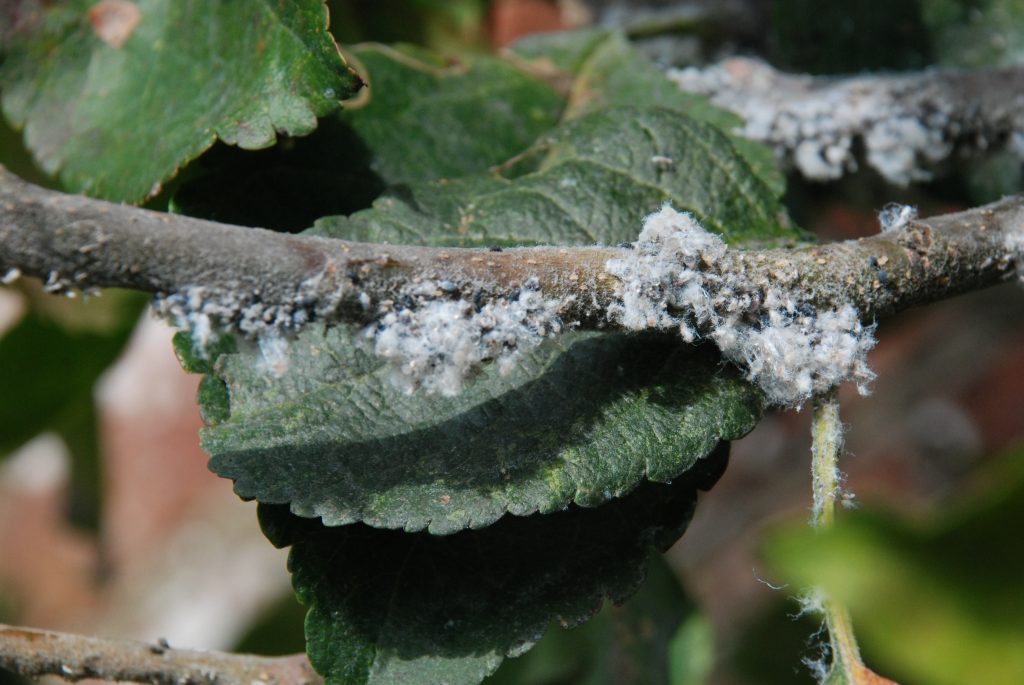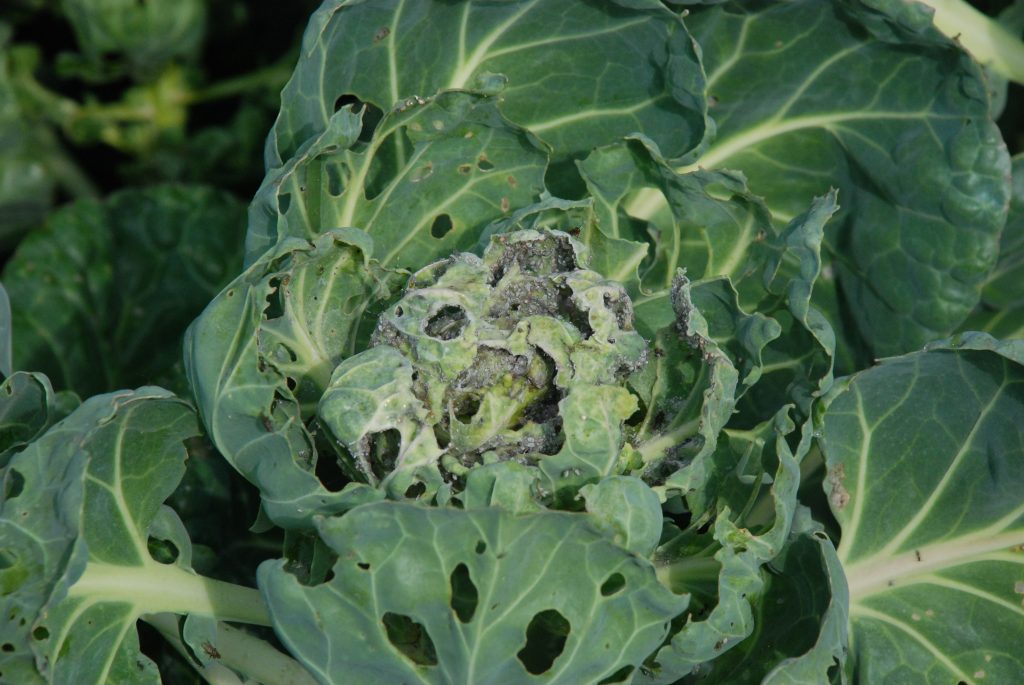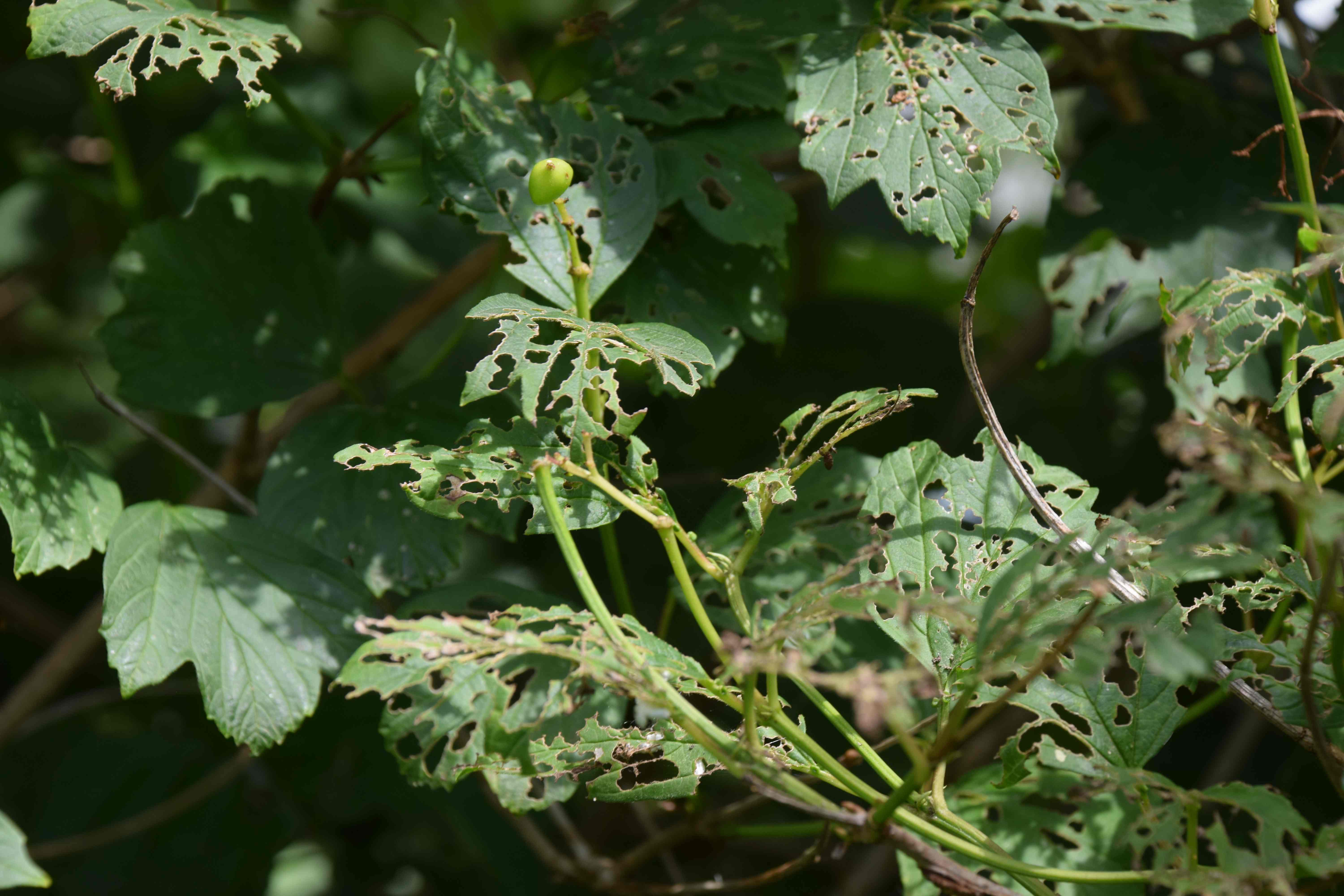
It is the season of mists and mellow fruitfulness and many of us will be enjoying the rewards of all our hard work over the past year. But we all know that gardening is not always the simple ‘plant and enjoy’ that we expect. Here are a few of the problems you may find in the garden right now. Of course we won’t see all of them every year and may not see them at all so if you are just starting don’t be put off!
Firstly, Brown rot, which is a very common issue (above). It is a fungal disease and you may see this even if your don’t grow anything – it can appear in your fruit bowl. The disease usually starts when a bird or wasp pecks the skin of the fruit and the disease starts as a brown spot. This rapidly expands and there are concentric rings of fluffy spore pustules as it spreads. The problem is far worse when the fruits are touching each other because the rot then spreads from fruit to fruit. It affects apples as well as pears and plums.
You can help prevent it by thinning your fruits early in the season so the fruits are not crowded. Although this is a disease that mainly affects the fruit it can also kill shoots if the fruits are left on the trees where the disease spreads back into the stems. Usually apples drop from the tree but on plum trees the fruit often dry up and become ‘mummified’. These will allow the disease to spread into the branches and these provide a source of infection next year. Where possible remove them.

Another common apple problem is wooly aphid. These aphids form dense colonies on the branches of apple trees and cover themselves in fluffy, waxy wool with makes them difficult to kill with sprays. When they are present for long periods they even cause the stems to become swollen and distorted. Spraying with an insecticide can be effective in summer, when the aphids are active and after the flowers have been pollinated. But at this time of year, as the leaves drop, you can scrub off the aphids or even blast them off with a pressure washer!

Another kind of aphid attacks cabbages and brussels sprouts. This is mealy aphid: a grey aphid with a waxy coating. It gets right into the growing tip, causing the young leaves to be distorted and inedible. If it gets into the sprouts it ruins them. You can use a spray to reduce the problem though it is difficult to eradicate so it is worth growing these crops under fleece or mesh to keep the pests, including caterpillars, off the crop.
It is not just crops that have problems. Apart from the common issues like mildew and blackspot on roses, another common problem is viburnum beetle.

This beetle affects most viburnums and the adults and the grubs eat away the leaf tissue, often only leaving the veins. Deciduous viburnums are most commonly affected. Often the first obvious sign of damage is the awful smell caused by all the droppings. It is rarely harmful to the plants and they recover and it is not practical to hand pick all the grubs so you may need to resort to a spray but organic as well as chemical sprays should be effective.
Jobs for the week
Lift dahlia and begonias to protect the tubers from frost and allow them to dry naturally in the greenhouse or shed.
Clear fallen leaves off the lawn and flower beds
Cut back perennials unless leaving the seed heads for wildlife
Use old compost from emptying pots as a mulch on borders or dig in to improve the soil.
Harvest squash and pumpkins
Bring in lemon trees and any other indoor plants before it gets too cold.